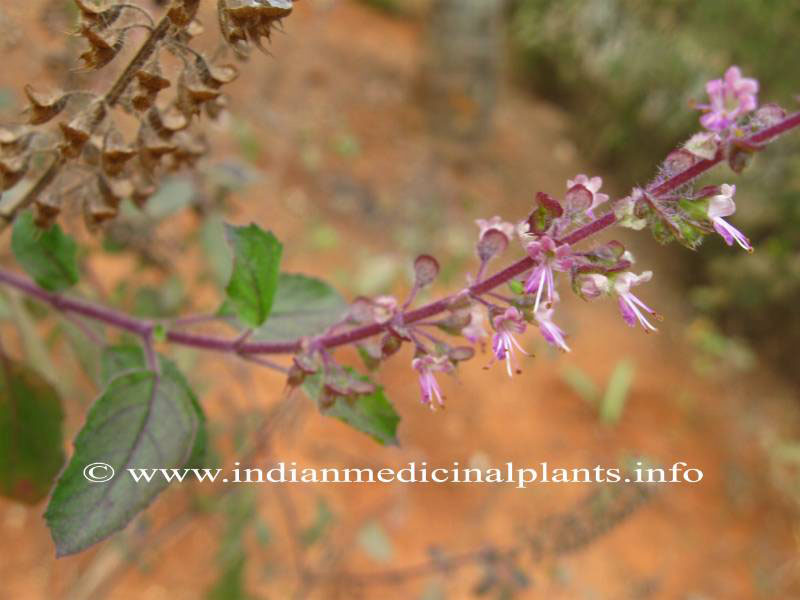Tulasi - Ocimum sanctum (O. Tenuiflorum)
Family Labiatae; Lamiaceae.
Habitat Throughout India; grown in houses, gardens and temples.
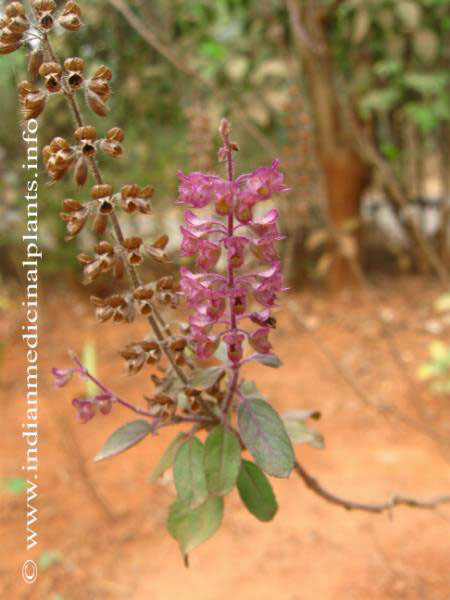
English Holy Basil, Sacred Basil.Ayurvedic Tulasi, Surasaa, Surasa,Bhuutaghni, Suravalli, Sulabhaa,
Manjarikaa, Bahumanjari, Devadundubhi, Apet-raakshasi, Shuulaghni,Graamya, Sulabhaa.

Action Leaf—carminative, stomachic,antispasmodic, antiasthmatic,antirheumatic, expectorant, stimulant,hepatoprotective, antiperiodic,antipyretic and diaphoretic.
Seed— used in genitourinary diseases.
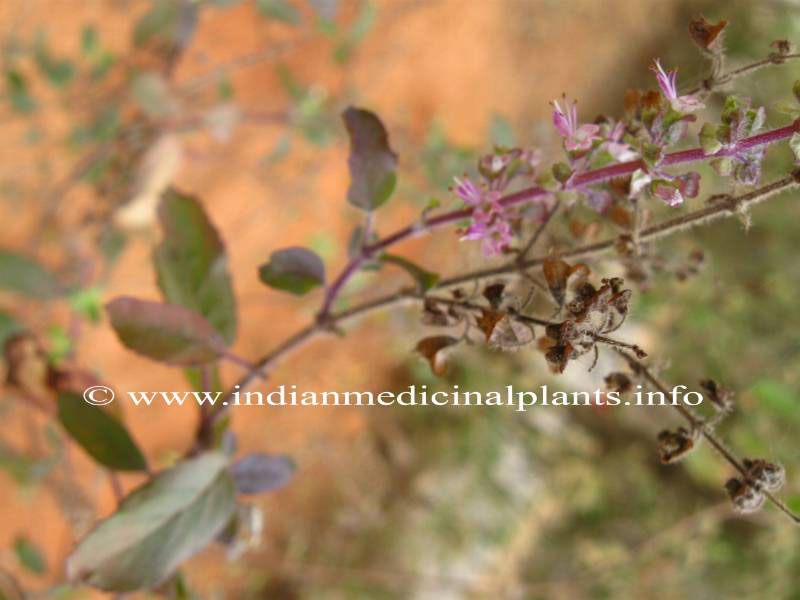
Root—antimalarial. Plant—adaptogenic,antistress.
Essential oil—
antibacterial, antifungal.
The Ayurvedic Pharmacopoeia of India
seed in rhinitis and influenza; the seedin psychological disorders, includingfear-psychosis and obsessions.
Major components of the essentialoil are eugenol, carvacrol, nerol and eugenolmethylether.
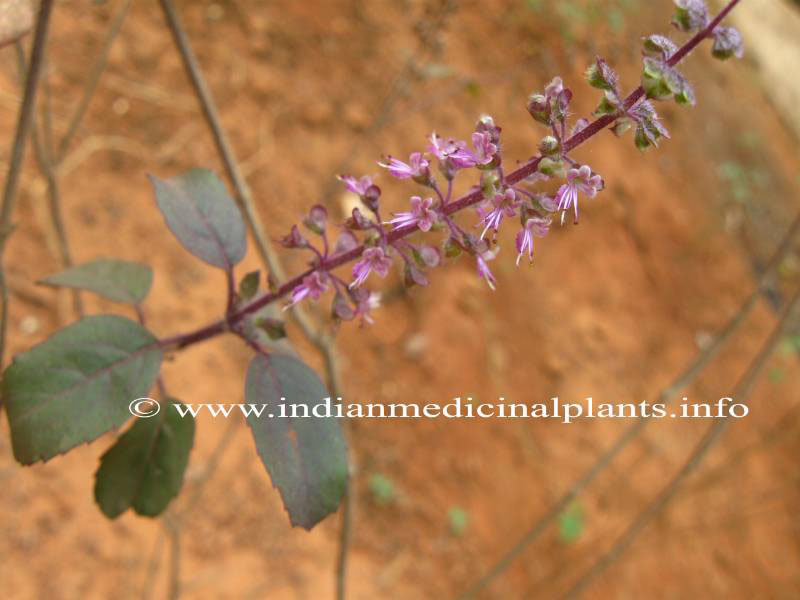
Leaves have been reported to contain ursolic acid, apigenin,
luteolin, leaves showed hepato-protective effect
against paracetamol-induced liver damage. The plant extract exhibited antiulcerogenic
property against experimental ulcers. Oral administration of alcoholic extract of leaves lowers blood sugar level in normal, glucose-fed hyperglycaemic
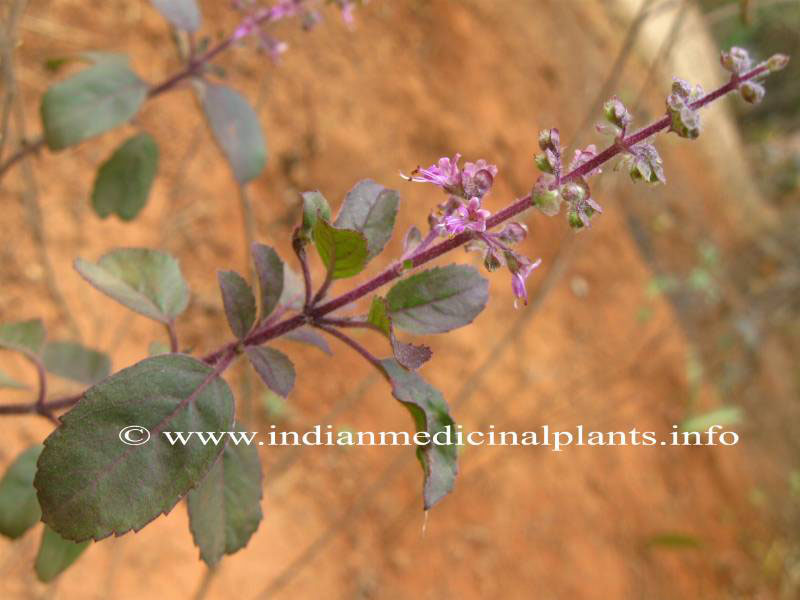
Administration of the juice of the plant affected a significant reduction in the size of urinary brushite crystals. A study of methanol extract and aqueous suspension of the leaves
showed immunostimulation of humoral immunologic response in albino rats indicating the adaptogenic action
of the plant.
Dosage Seed—1–2 g powder (API,
Vol. IV); plant—12–24 ml infusion
